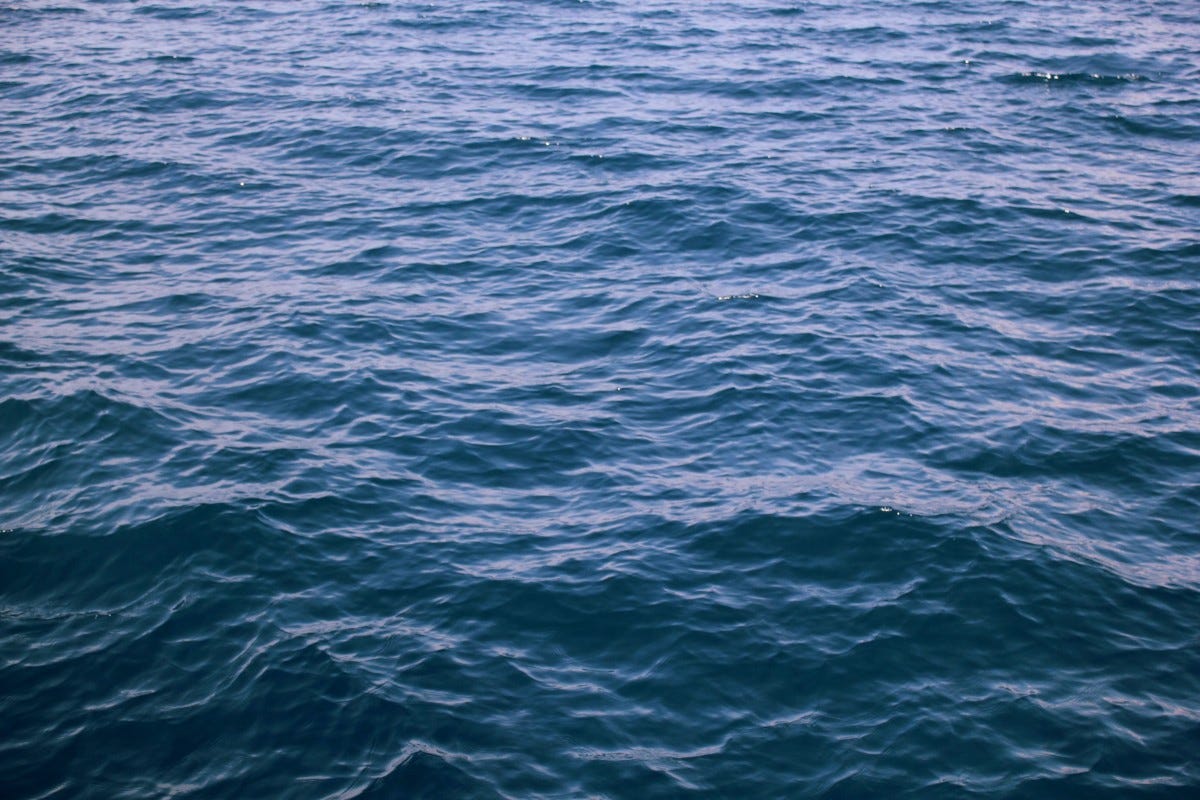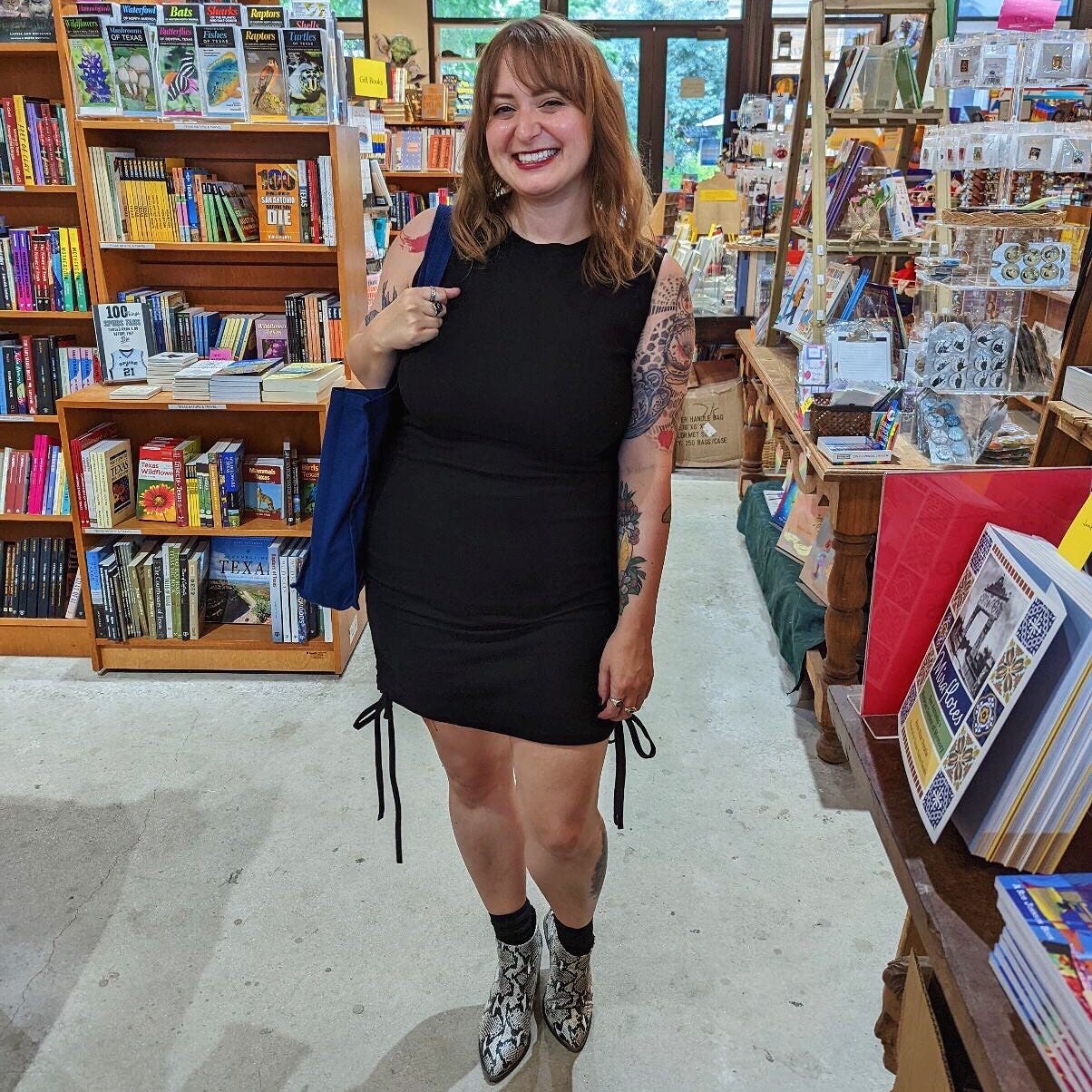making waves.
Yesterday, I went to the beach with my partner, a book, and a few cans of Chenin Blanc. It was warm enough to swim in the ocean, which means summer is here, and we held hands in the waves. He swam out further, braver than I am, more inured to the cold. The beach was crowded, but I felt so happy to see other people enjoying themselves. Like, we were all living in this moment together, and the sun was shining, and sea lions were barking near the pier, and everything wasn’t completely terrible.
I had been in Texas last week for book events at Brazos Bookstore in Houston and The Twig Bookshop in San Antonio. Both events were filled with love and support and that nourishment of creative sustenance necessary for survival.
But it was also surreal to be in Texas, my home state, for the overturning of Roe v Wade, to lose my essential rights back in a state that I love but that has become progressively embarrassing to be from.
My publisher and I agreed to donate $1 to Fund Texas Choice for every copy of The Drowned Woman sold (buy yours here), which is a small thing, but it’s an action.
I long to be full of action and forward motion and grit, but I more often end up online shopping and escapist reading instead. Suddenly, the day is over, and I’m confused as to why my room has dimmed to near darkness. I should be working on editing my short story collection that is releasing in November, I should be doing something other than doomscrolling and snacking, but it’s hard. It’s so hard.
I’ve been reading mostly about rebellious women, women living on their own terms in spite of societal expectations, perhaps it’s aspirational or merely necessary.
A View of the Harbour by Elizabeth Taylor is one of my favorite recent reads. Taylor is brilliant and I am so thankful to have discovered her during the pandemic, A View of the Harbour may be my favorite from her so far. In a rundown seaside town just after WWII, Taylor explores the themes of loneliness, intimacy, betrayal, and art. The POV shifts between seven main characters who range from a retired seaman turned painter to a tyrannical and bedridden woman who lives for gossip and laments her situation endlessly.
Each character has a distinct attachment to the harbor’s visage. The ocean has a hold over the town, sometimes carrying off ships and entire crews of fishermen, sometimes bringing people home to the harbor once more. For some, it’s a place to escape from, for others, the harbor constitutes the entirety of their existence.
“I never went anywhere. I just stayed here at the harbour all my life, and, just as my eyes first focused on that scene, so they will close upon it.”
When Bertram Hemingway, a newcomer, enters the scene to make some attempt at painting the harbor, many of the town’s social machinations are revealed through his eyes. He lacks the years long grudges and knows nothing of the town’s gossip and so moves more fluidly among the inhabitants, despite their distrust of strangers. Bertram, however, much like the others, is still lonely and suffers from the knowledge of his own mediocrity.
The book is melancholy, nostalgic, but holds a glimmer of hope that artistic endeavors may provide solace and community and belonging may appear in unexpected ways. Taylor’s style and characters are more modern than the time she was writing in and I have enjoyed everything I’ve read from her.
Good Morning, Midnight by Jean Rhys was another recent read, and certainly another modernist writer quite before her times in style and subject matter. Here, Rhys tells the story of Sasha, an Englishwoman who has returned to Paris on borrowed money and borrowed time to recapture the life she’d once led there. She intends to get a new hairdo, new clothes, and a new lease on life, but instead she spends most of her time drugging herself with alcohol and crying.
“That is the only advantage women have over men - at least they can cry.”
Throughout the novel, there is an undercurrent of violence and danger as Sasha wanders into bars for a Pernod or three, meets strange men who she loves then hates in equal measure, barely scrapes by on the meager finances she has. The Paris of Rhys’ imagining is sinister, a place where dim alleys give way to cheap, bug infested hotels. There’s a pervasive sense of unpredictability — at any point, Sasha could be plunged into homelessness and we hold our breath for her.
Sasha’s saving grace is her ability to look into the hopelessness of her situation and fight back. Sometimes she cries first, but then she hatches a plan. Her tirelessness is nothing short of inspirational.
“Tomorrow I will be pretty again. I’ll be happy again, tomorrow, tomorrow..”
I also read Good Behavior by Molly Keane and Evening Class by Maeve Binchy, both of which I’d recommend, as well as Last Summer in the City by Gianfranco Calligarich, a novel discovered by Natalia Ginzburg, that was a decadent, tragic tale of a man and his love of a city.
Things have slowed down now to a heartbeat, a steady pulse, rather than the mad rush of the weeks prior and I am looking forward to embracing the dog days of summer, reading books, and trying to find joy in the daily act of living.




